openEuler Buzz - Stay Updated with openEuler Community Progress!
Dear Developers,
We are thrilled to present the inaugural edition of our openEuler Buzz (community progress update)! As an essential part of our community, we want to ensure you stay informed about the latest developments in the openEuler ecosystem.
In this edition, we will highlight current community scale, activities, and exciting tech progress that you don't want to miss. openEuler is an open-source, community-driven operating system designed to empower developers like you to collaborate, innovate, and build remarkable solutions.
Community Scale
In June 2023, the number of openEuler community users exceeded 1.45 million. More than 148,00 developers have made continuous contributions to the community, producing 113.9K PRs and 59.8K issues. So far, 967 organization members have joined the openEuler community, among which 84 organizations joined in June. Get to know the latest statistic via https://datastat.openeuler.org/en/overview.
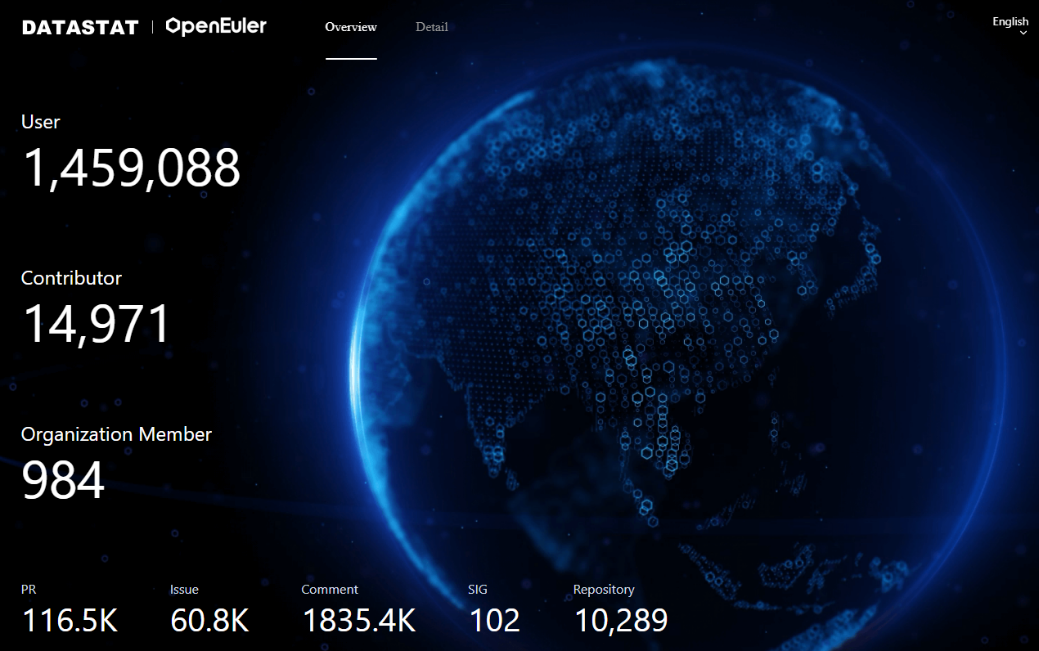
openEuler RISC-V Release Won the First Prize of the Latest China Open Source Innovation Competition
openEuler RISC-V Release, jointly developed by the Institute of Software, Chinese Academy of Sciences and openEuler RISC-V SIG aims to improve the openEuler software ecosystem based on the RISC-V architecture, so that openEuler has sufficient software packages to meet the application requirements of various industries and scenarios, and to ensure the software availability, stability, performance, and system security.
Currently, the openEuler RISC-V Release natively supports seven development boards:
Nezha/D1
LicheeRV
SiFive Unmatched
VisionFive 1
VisionFive 2
SG2042(EVB)
LicheePi 4A
It also adapts to multiple desktop environments such as XFCE, DDE, UKUI, GNOME, Kiran, and Cinnamon.
openEuler x Kuasar Container Runtime Meetup Held
In May, the openEuler Container Runtime Meetup took place online, bringing together experts in the field to explore the latest advances in container runtime and sandbox technologies. The event was jointly sponsored by openEuler and Kuasar, and featured a lineup of impressive speakers, including Michael Yuan, founder of WasmEdge, Yulin Sun, CEO of QuarkSoft, and developers of openEuler iSulad and Kuasar.
Watch replay: https://youtu.be/oR-J7VcnMqs

openEuler SDS Meetup Successfully Held at Beijing
On May 20, the openEuler SDS Meetup was held at Beijing. This Meetup is jointly sponsored by XSKY & openEuler SDS SIG. More than 30 developers from 19 enterprises attended onsite. During the Meetup, SDS experts and developers discussed the latest progress and innovative applications of SDS technologies in openEuler.
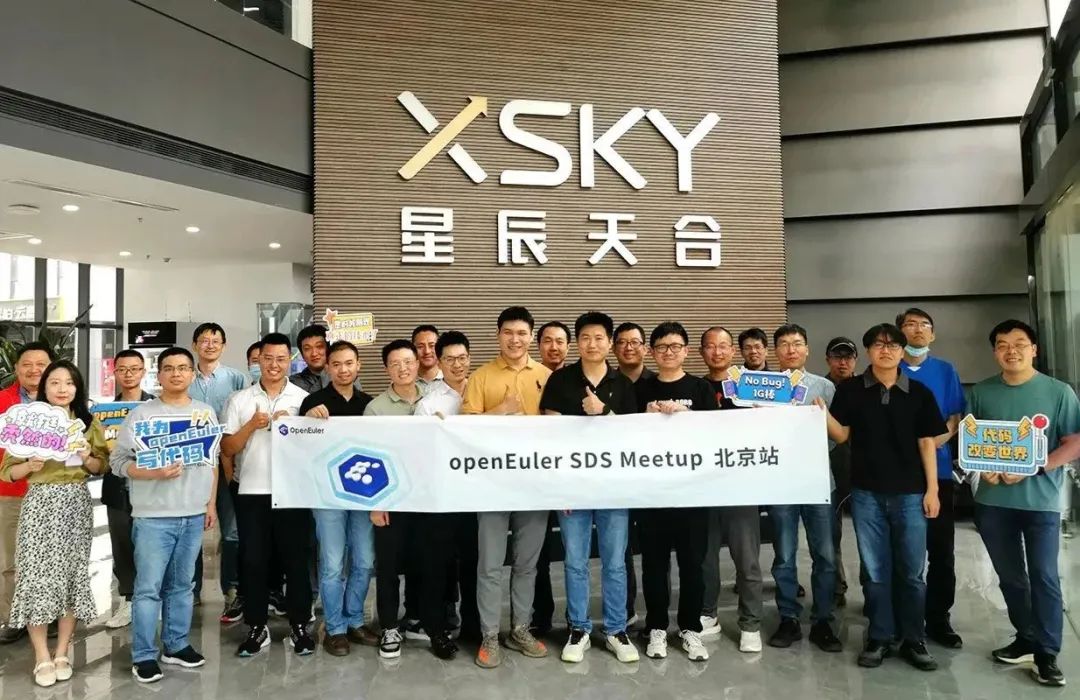
The openEuler community welcomes more community meetups, apply here: https://www.openeuler.org/zh/interaction/event-list/collect/
If you need a platform to discuss cutting-edge technologies and open source trends, don't hesitate to join us.
openEuler Tutorials Now on YouTube
Recently, openEuler G11N SIG and Kernel SIG jointly launched a series of mini courses. Each course takes no more than 10 minutes to share technical knowledge of operating systems in easy-to-understand languages. The courses are now on YouTube, subscribe to our official YouTube channels for new episodes.
Watch tutorials: https://www.youtube.com/playlist?list=PLtDfk9jvMAziPyVaA-DOkXx0GgIUjXc0_
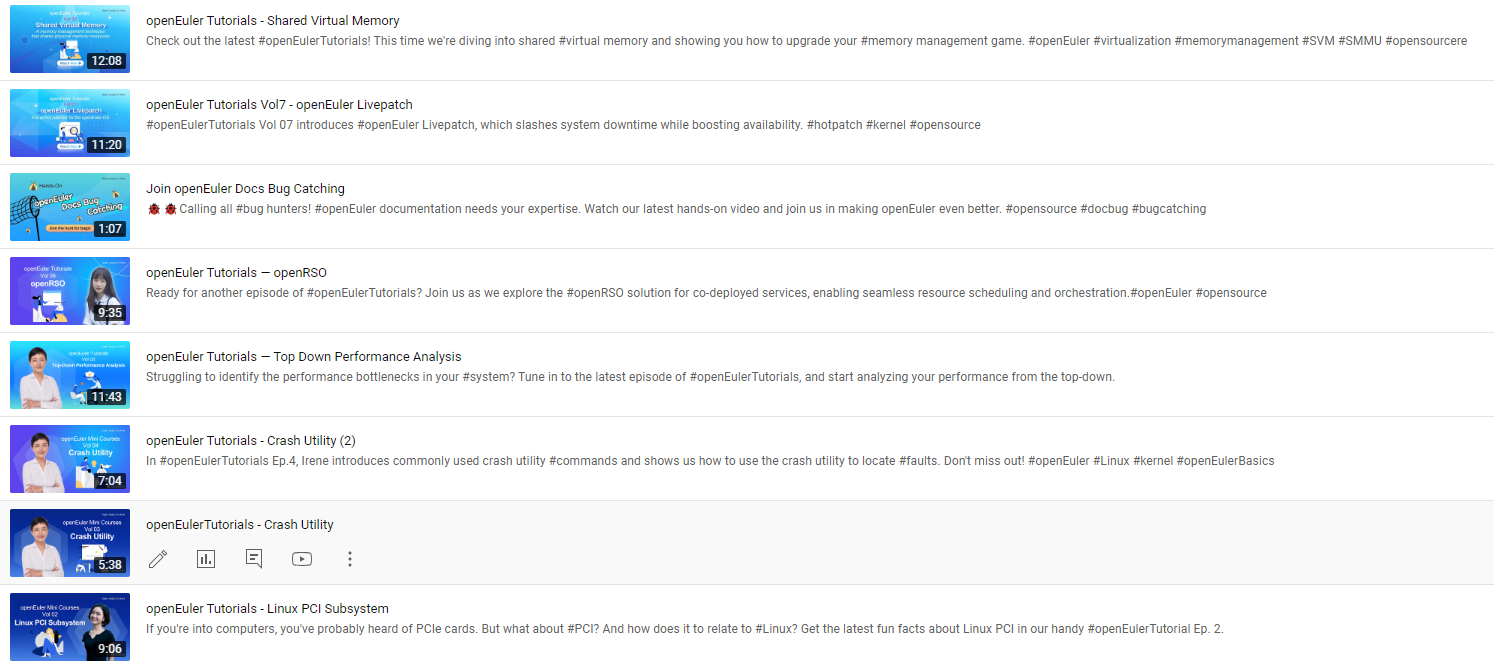
2,000+ Pieces of Bioinformatics Open Source Software Natively Support Kunpeng+openEuler
Recently, the Bioconductor community, one of the largest communities in the field of bioinformatics, announced that Kunpeng hardware+openEuler OS has been selected as one of the official verification platforms. The addition of support for Kunpeng hardware and openEuler open source operating system for over 2,000 pieces of open source software means that universities, research institutes, and enterprises can directly use these software pieces on Kunpeng.
Make sure to keep an eye on your inbox as we continue to deliver regular openEuler Buzz directly to you. We aim to keep you inspired and well-informed, enabling you to make the most of your openEuler journey. openEuler 22.03 LTS SP2 Released
On June 30th, openEuler 22.03 LTS SP2 was released. This version is aimed at application scenarios such as servers, cloud-native, edge, and embedded, and is built on Linux Kernel 5.10, with external interfaces following the POSIX standard. At the same time, openEuler 22.03 LTS SP2 integrates distributed software bus, KubeEdge+ edge-cloud collaborative framework, and other capabilities, further enhancing the collaborative ability of digital infrastructure.
Download to try:https://www.openeuler.org/en/download/?version=openEuler 22.03 LTS SP2
OEPKGS Officially Launched
The Open External Packages Service(OEPKGS) is officially launched, providing more than 30,000 compatible software packages for openEuler. It supports one-stop compatibility software packages for developers and OSVs who want to port CentOS and Fedora to openEuler.
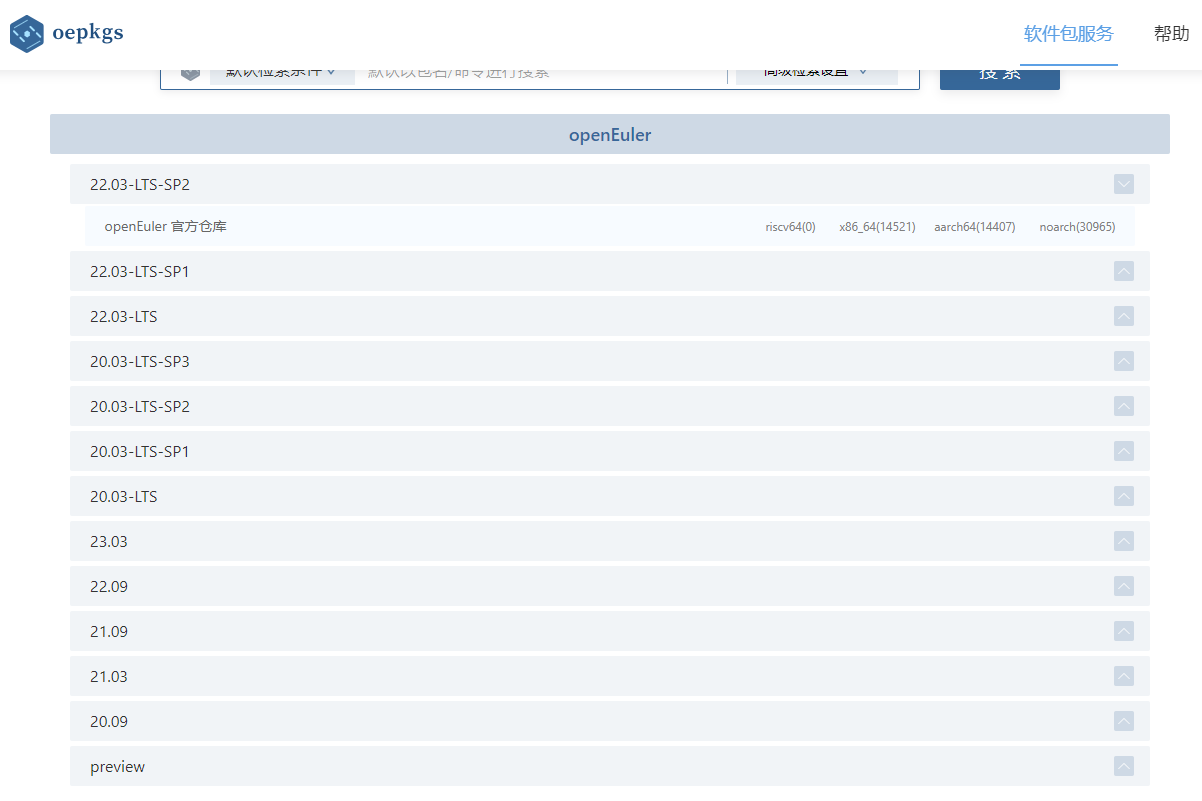
In addition, OEPKGS launches multiple services for the openEuler ecosystem, such as RPM software package retrieval, metadata analysis, SBOM and supply chain analysis, and security and compliance risk analysis.
openEuler Successfully Adapts to the LeapFive InFive Poros Development Board
Recently, the innovative version of openEuler RISC-V 23.03 was successfully run on the Poros development board from LeapFive. The XFCE desktop booted up smoothly, and related GUI applications such as file systems, terminal emulators, and input methods also ran smoothly. Applications such as Chromium browser and LibreOffice were also supported. Currently, the graphics interface relies on LLVMpipe rendering, and LeapFive will strengthen GPU driver optimization in the future.

Musl libc Library Successfully Adapted to openEuler Embedded
The adaptation of musl libc library has been achieved on the openEuler embedded operating system, replacing the glibc library to build images. Currently, images compiled with musl libc as the base library are available on the Raspberry Pi4 development boards.
ROS SIG Will Introduce ROS2-humble in openEuler 22.03 SP2
As the application of ROS becomes increasingly diverse, ROS2 was developed to meet the growing needs of robot applications. Humble is a long-term support (LTS) version of ROS2 with a mature ecosystem. ROS SIG plans to introduce ROS2-humble in the openEuler sp2 version, involving more than 450 software packages. After successful porting, users will be able to use ROS2 through openEuler and develop robot algorithms and software based on ROS2, supporting algorithms such as robot mapping, localization, navigation, and more.

sysMaster Project Released
"sysMaster" is an improvement and exploration by openEuler, addressing issues and characteristics encountered in Linux system initialization and service management across different scenarios. It aims to enhance the traditional init daemon by providing a unified solution for system initialization and service management, supporting process, container, and virtual machine management in embedded, server, and cloud environments. Implemented in Rust, it incorporates various techniques such as fault monitoring and sub-second self-healing to enhance OS stability and business availability.
Learn more:https://www.openeuler.org/en/blog/20230512-sysMaster/20230512-sysMaster.html
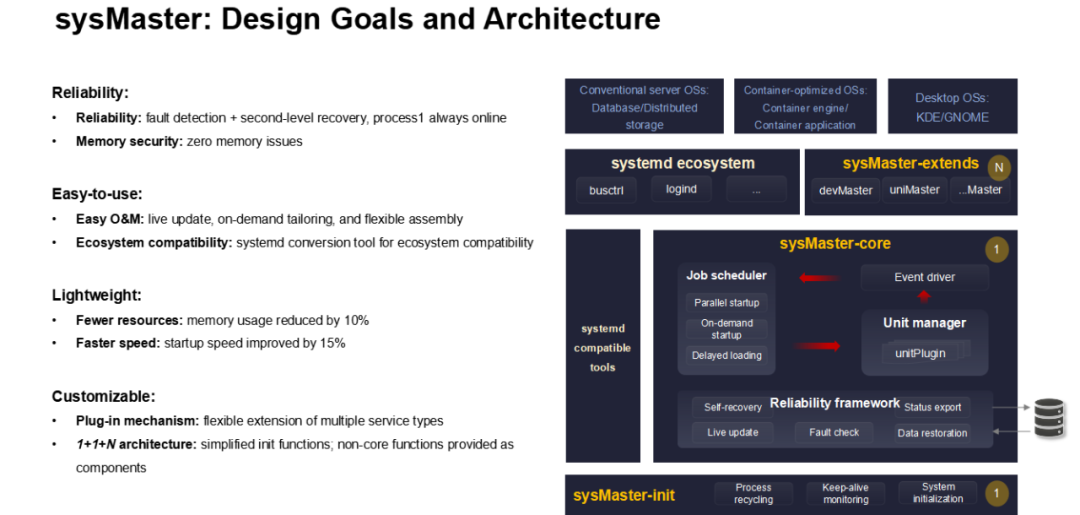
- OrbStack Supports openEuler Distribution
OrbStack, a lightweight virtual machine platform for Mac, now supports the openEuler distribution. Developers can easily download OrbStack from their official website and create a virtual machine by simply clicking on the appropriate openEuler version. Once the creation process is complete, they can use openEuler through the command line.
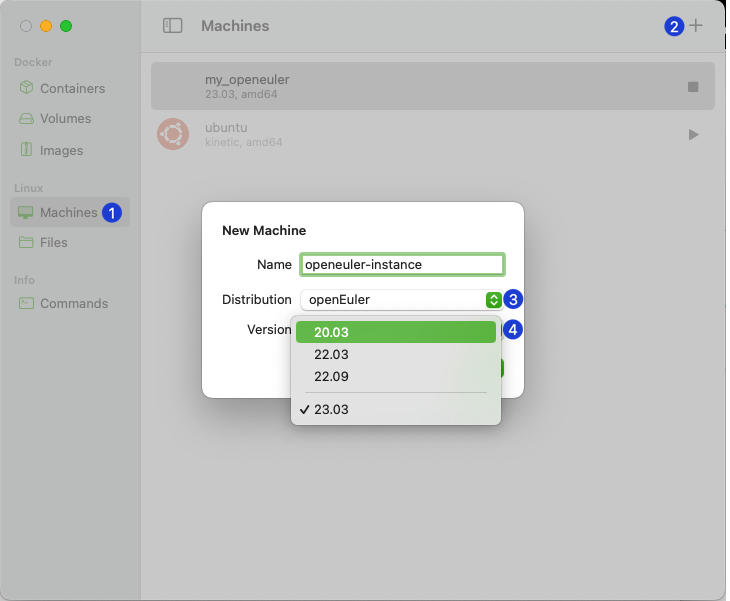
RocketMQ on openEuler Provides A Stable Solution for High-Performance Message Queues
RocketMQ on openEuler is a way to deploy the RocketMQ message middleware on the openEuler operating system through containerization. With the enhanced kernel features of openEuler for OS cache recycling efficiency, it improves the stability and reliability of the message middleware in scenarios with ultra-large-scale high-concurrency, high-throughput, and low-latency, making it a reliable software solution.
This is a brief wrap-up for the openEuler community in May and June. Thanks for your support.
If you have any questions, suggestions, or would like to contribute to the openEuler community, feel free to reach out to us at public@openeuler.org. Your input and engagement are greatly appreciated!
Engage with us:
Twitter: https://twitter.com/openEuler
LinkedIn: https://www.linkedin.com/company/86315548
YouTube: https://www.youtube.com/@openeuler
Slack: https://join.slack.com/t/openeulerhq/shared_invite/zt-1z1kgmtw4-AiBozBdxi1IC8wf6Rgx1tQ
Reddit: https://www.reddit.com/r/openEuler/
Best regards,
openEuler Community Team
